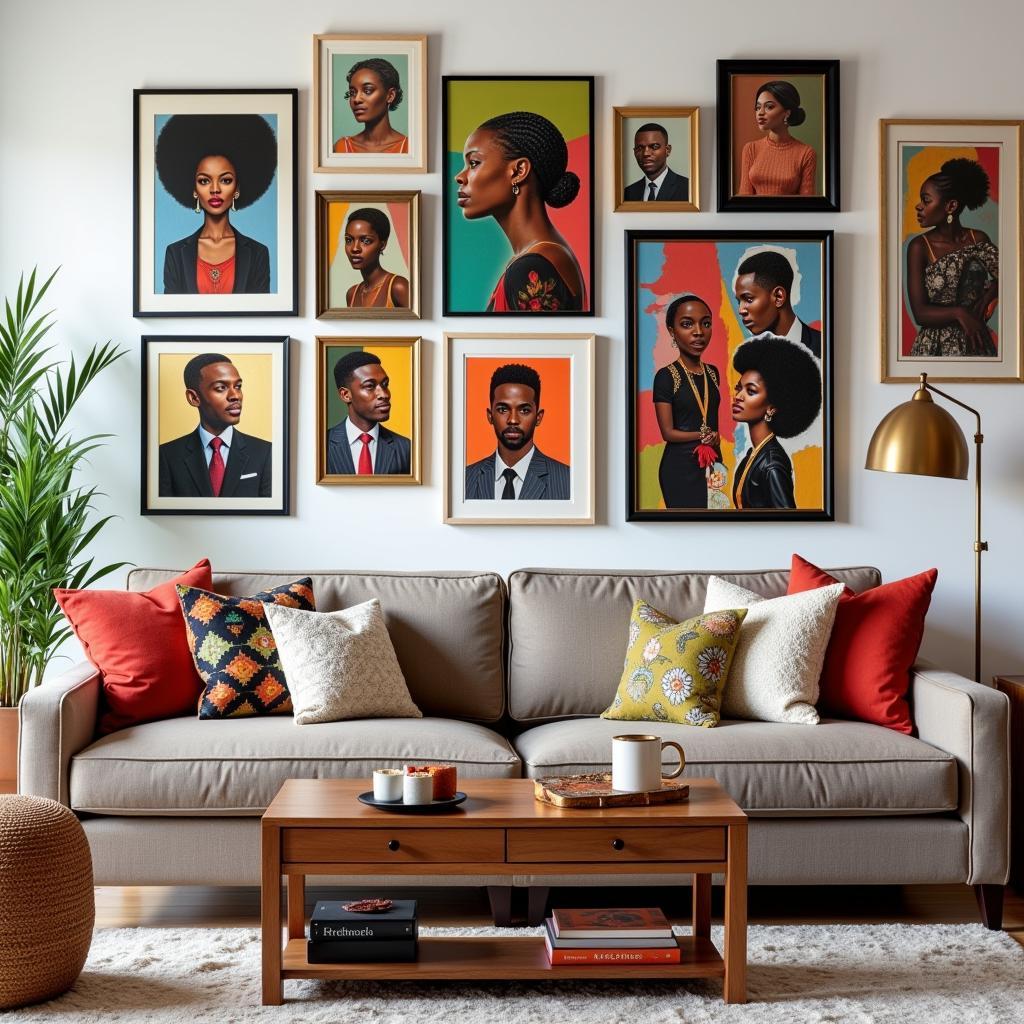A Deep Dive into African Hip Hop History
African Hip Hop History is a vibrant tapestry woven with threads of resistance, creativity, and cultural expression. From its humble beginnings, influenced by the echoes of American hip hop, it has blossomed into a powerful force, shaping identities, challenging norms, and amplifying the voices of a generation. This exploration delves into the rich history of African hip hop, tracing its evolution, highlighting key figures, and examining its impact on the continent and beyond.
The Genesis of African Hip Hop: Early Influences and Pioneers
The seeds of African hip hop were sown in the 1980s, as the sounds of American hip hop began to permeate the airwaves and infiltrate the burgeoning urban centers of Africa. Radio played a crucial role in disseminating this new musical form, captivating young audiences with its raw energy and social commentary. However, African artists didn’t simply mimic their American counterparts. They adapted and transformed the genre, infusing it with their own unique cultural experiences, languages, and musical traditions. Early pioneers like South Africa’s Prophets of Da City and Senegal’s Positive Black Soul paved the way, demonstrating the potential of hip hop as a vehicle for social change and artistic expression.
african american museum boston
One key difference between American and African hip hop is the emphasis on multilingualism. In many African countries, artists seamlessly blend local languages with English, French, or Portuguese, creating a unique sonic landscape that reflects the linguistic diversity of the continent. This multilingual approach not only expands the reach of the music but also serves as a powerful affirmation of cultural identity.
From Underground to Mainstream: The Rise of African Hip Hop in the 90s
The 1990s witnessed a significant shift in African hip hop, as the genre transitioned from the underground to the mainstream. Across the continent, artists began to gain recognition, both locally and internationally. Groups like Senegal’s Daara J Family and South Africa’s Bongo Maffin helped to solidify hip hop’s place in the African musical landscape, attracting a wider audience and pushing the boundaries of the genre. This era also saw the emergence of distinct regional styles, reflecting the diverse cultural and musical traditions of different parts of Africa.
“African hip hop is not just about music, it’s about storytelling, it’s about sharing our experiences, it’s about connecting with our communities,” says Adebayo Ogunlesi, a renowned ethnomusicologist specializing in African music.
The 21st Century: A Global Force
The 21st century has ushered in a new era for african hip hop history. With the rise of the internet and social media, African hip hop artists have gained unprecedented access to global audiences. Artists like Nigeria’s M.I Abaga, Ghana’s Sarkodie, and Kenya’s Khaligraph Jones have achieved international acclaim, collaborating with international artists and performing on global stages. This era has also seen the diversification of the genre, with artists experimenting with new sounds and styles, pushing the boundaries of African hip hop ever further.
african american cultural identity
What are the key characteristics of 21st-century African hip hop?
21st-century African hip hop is characterized by its global reach, its diverse sounds, and its continued engagement with social and political issues.
“The beauty of African hip hop lies in its ability to connect with people on a deeply personal level, while also addressing broader social and political issues that affect us all,” observes Dr. Fatima Mbaye, a leading scholar on African popular culture.
The Future of African Hip Hop
African hip hop continues to evolve, adapting to new technologies and embracing new influences. As the genre grows in popularity and influence, it promises to continue shaping the cultural landscape of Africa and the world. Its power to inspire, to challenge, and to connect transcends borders and generations, ensuring that African hip hop history will continue to be written for years to come.
Conclusion
African hip hop history is a testament to the power of music as a force for social change and artistic expression. From its humble beginnings to its current global prominence, it has consistently challenged norms, amplified voices, and shaped identities. As we look to the future, African hip hop promises to continue its dynamic evolution, inspiring new generations and pushing the boundaries of creativity. The journey of African hip hop is far from over; it is an ongoing narrative that continues to unfold, enriching the global musical landscape with its unique rhythms and powerful messages. African hip hop history is not just a history of music; it’s a history of a continent finding its voice.
FAQ
- What are the origins of African hip hop?
- Who are some of the pioneers of African hip hop?
- How has African hip hop evolved over time?
- What are some of the key characteristics of African hip hop?
- What is the impact of African hip hop on the continent and beyond?
- Who are some popular contemporary African hip hop artists?
- What is the future of African hip hop?
african american young adult fiction
When you need assistance, please contact us:
Phone Number: +255768904061
Email: kaka.mag@gmail.com
Address: Mbarali DC Mawindi, Kangaga, Tanzania.
We have a 24/7 customer service team.
